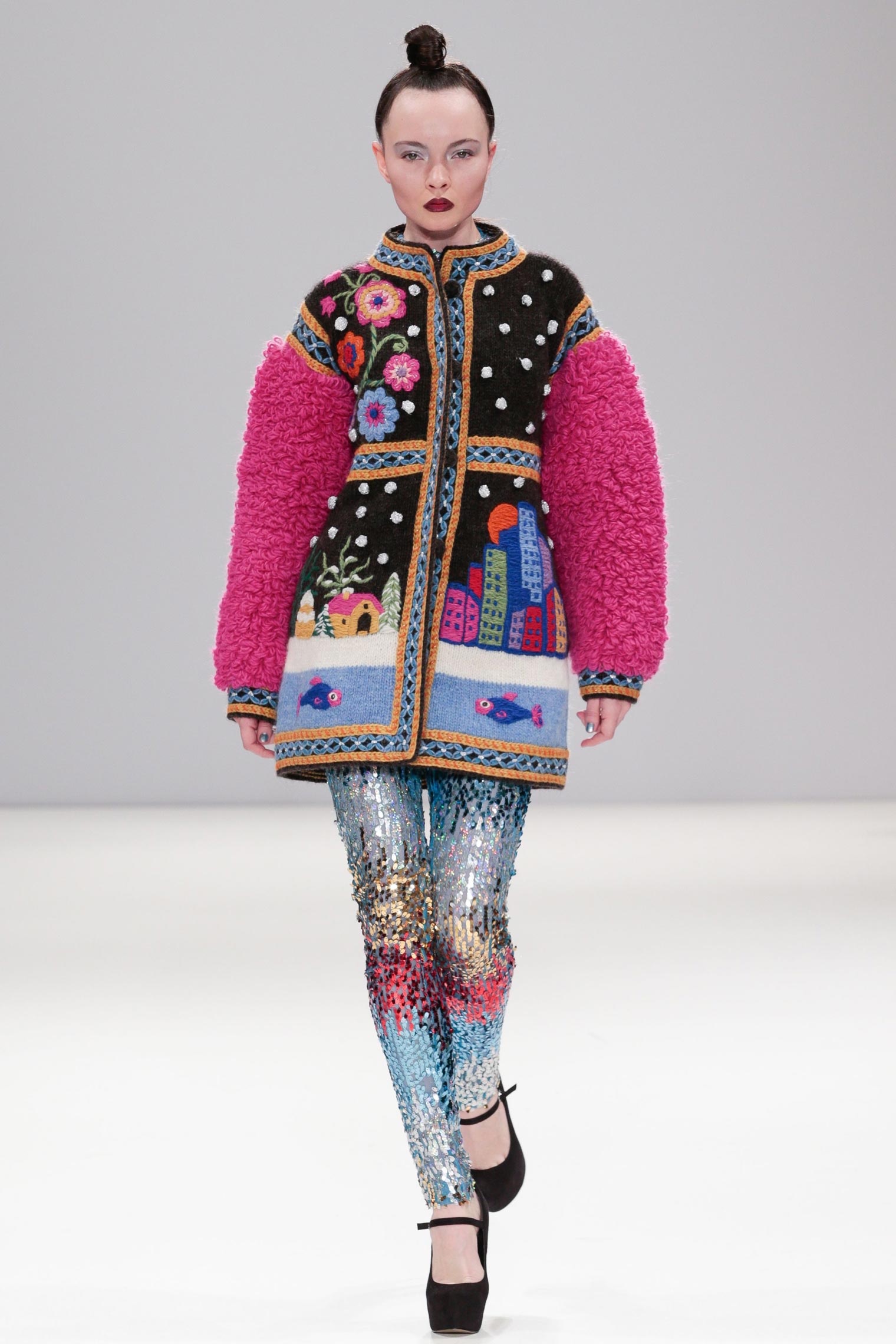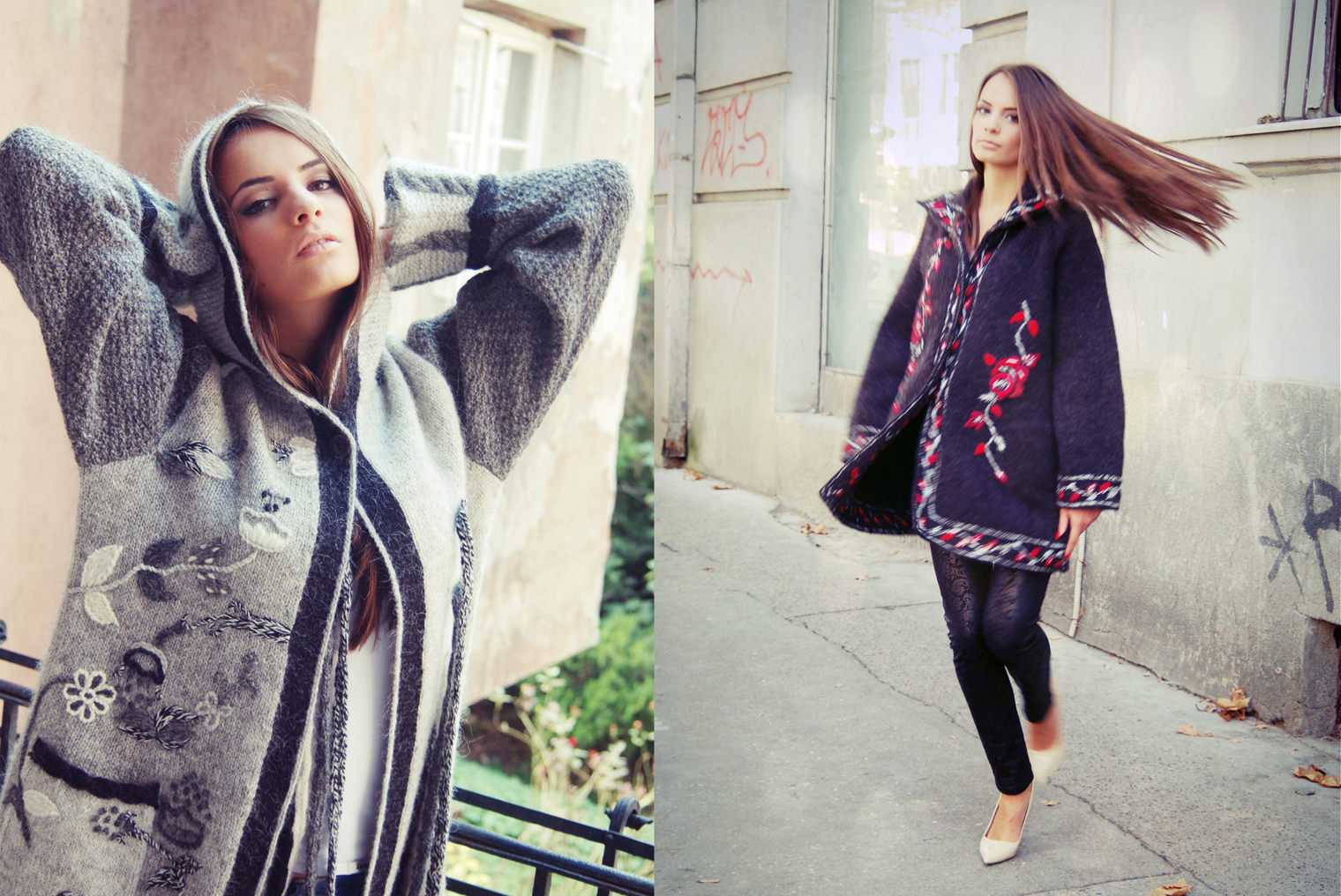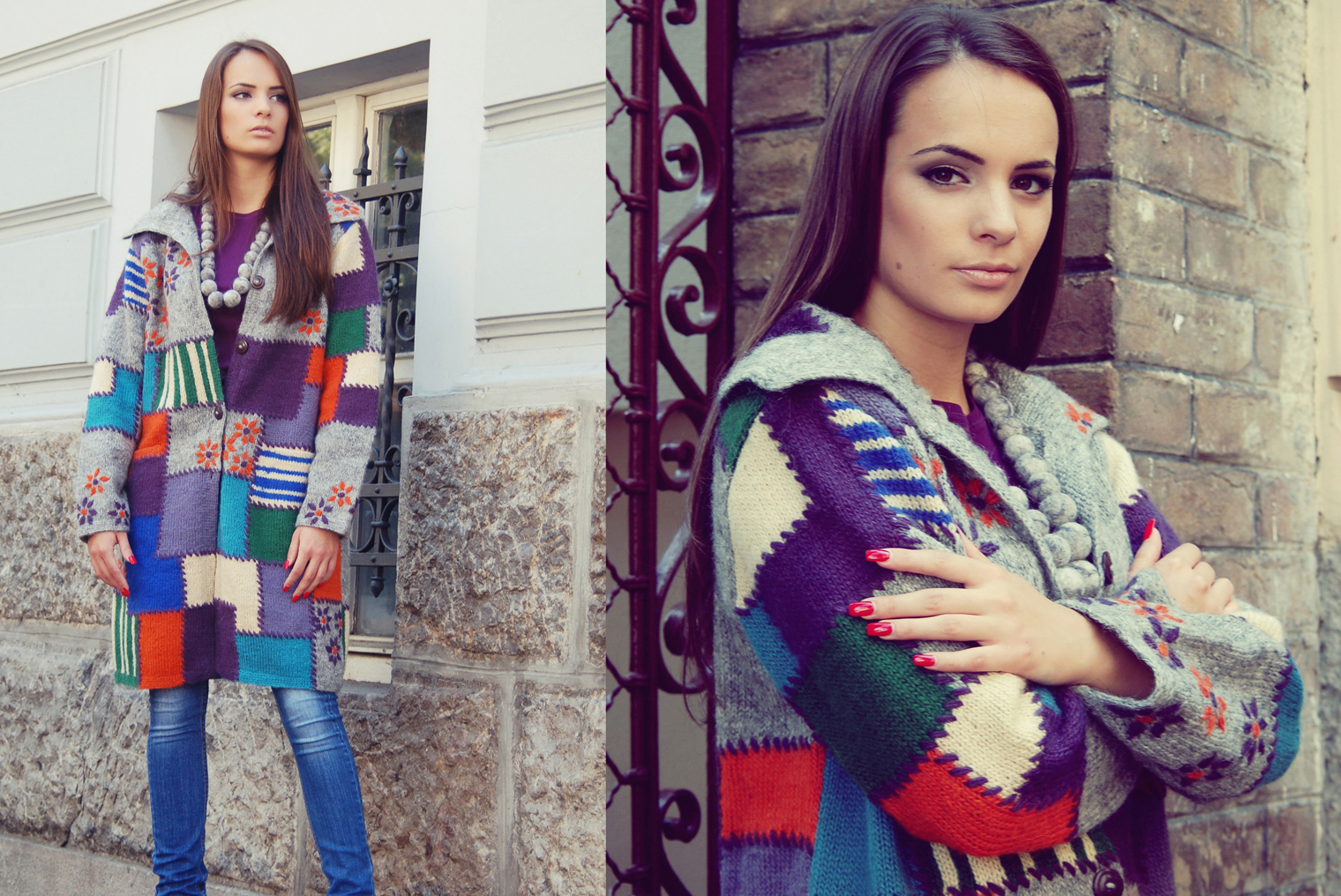Women-knitters
Sirogojno Style woolen stories have been set up in the villages of the Zlatibor region in the Western Serbia. The tradition of wool processing and manufacturing of woolen clothing items has been cherished for centuries in the region of Zlatibor. Due to the climate conditions and primary livestock farming, women in this area traditionally make woolen clothes for their family members.
The traditional skill of knitting, the yarn from Iceland of the superior quality and authentic design, create a recognizable symbiosis of tradition and contemporary fashion. The organized production of woolen clothing items includes hundreds of women- kinitters who bring into their work a seal of the ambiance where they live and create.
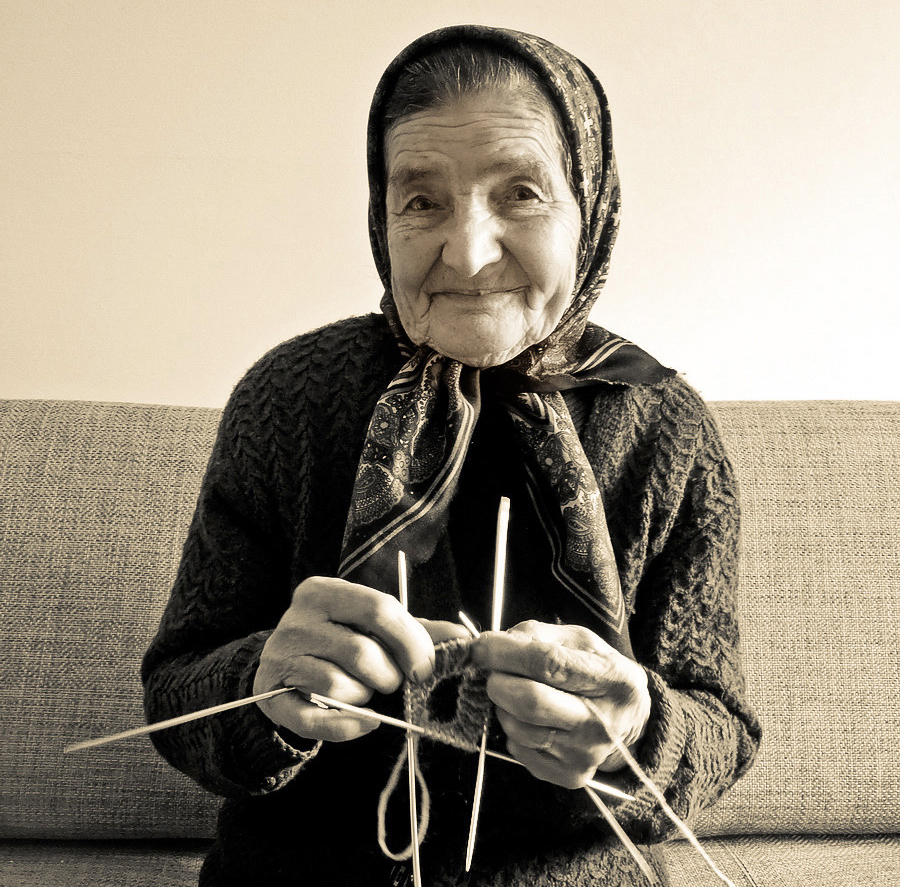
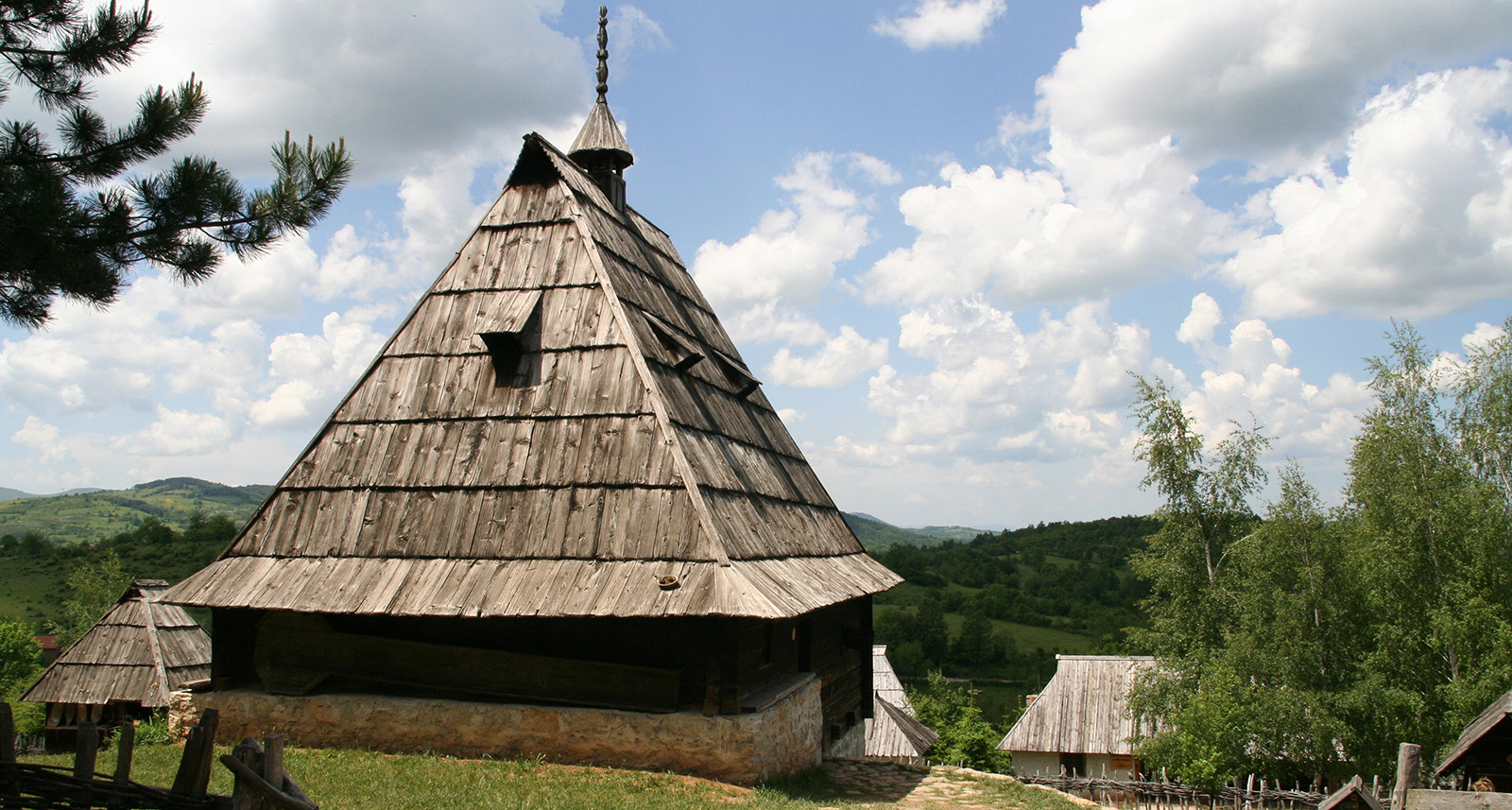
Walking images
Hand-knitted clothes from Sirogojno are nowadays recognizable for its landscape motifs, images of the colourful Zlatibor nature embroidered on the clothing items. It is less known that these motifs, as a result of the idea of Dobrila Vasiljevic Smiljanic, first appeared in the 1980s, after geometrical and floral motifs typical for the 1970s.
Apart from the clothing items with the images of Zlatibor nature, that made designer Dobrila Smiljanic and the women-kinitters from Zlatibor famous, the Sirogojno Style label is nowadays on the works of young fasion designers who combine the traditional way of production with the contemporary styles, colours and motifs.
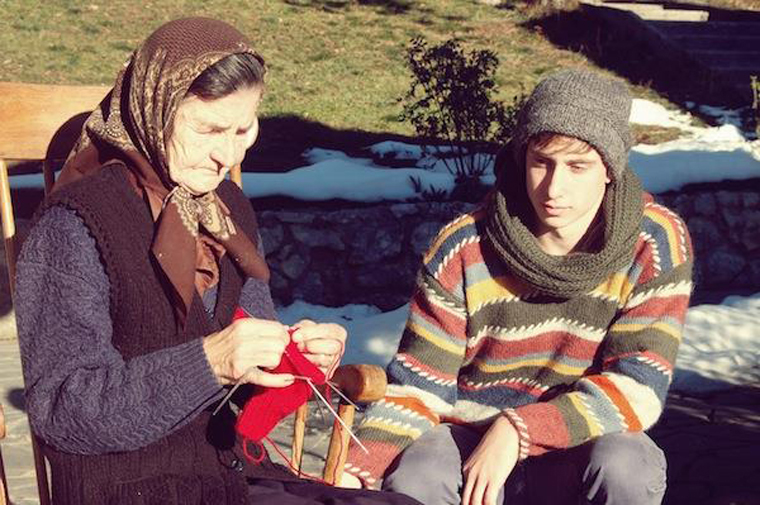
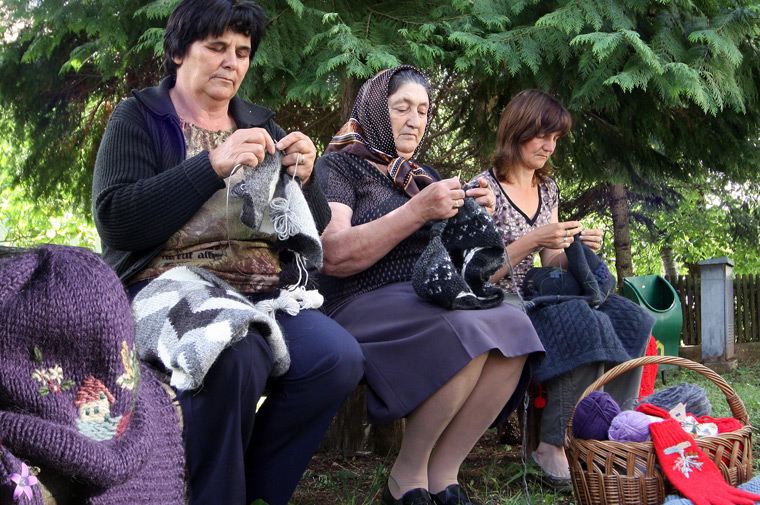
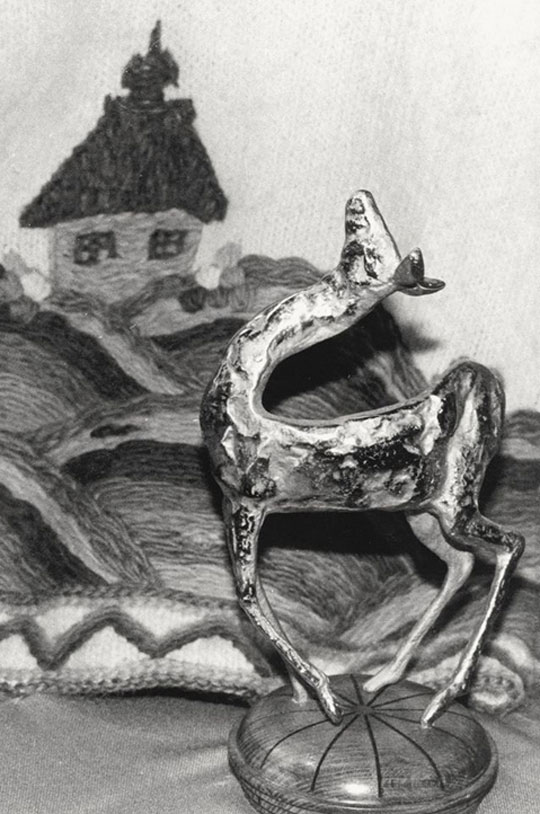
Fashion from Sirogojno
The skill of knitting was recognized in the 1960s as a possibility for women from Sirogojno and the area to make an income, and at the same time take care about their families and households. The organized production of woolen clothing items in local households started in 1962 within the Agricultural Cooperative in Sirogojno. Within short time, the creations of Dobrila Vasiljevic Smiljanic, made by the skilful hands of the women-kinitters from Zlatibor, started to string successes in the domestic and foreign markets. Numerous awards for the design as well as the letters and photographs of the fashion followers and creators from all over the world witness the incredible success of the fashion brand originating from a small village in Zlatibor.
Memories
Memories of the beginnings and the biggest successes of the women-kinitters and designer Dobrila Smiljanić are nowadays kept at the Kinitters' Museum in Sirogojno. At this place, authentic photographs, newspapers articles and recordings of the fashion shows present a unique story about the clothes admired by Nancy Raegan, Jovanka Broz, Raisa Gorbachev, Liv Ullmann and the British Queen. Founded in 2008, the Museum hosts numerous awards for fashion design as well as acknowledgments for the contribution to the cultural and economic development of Sirogojno and Zlatibor. More about the Museum ...
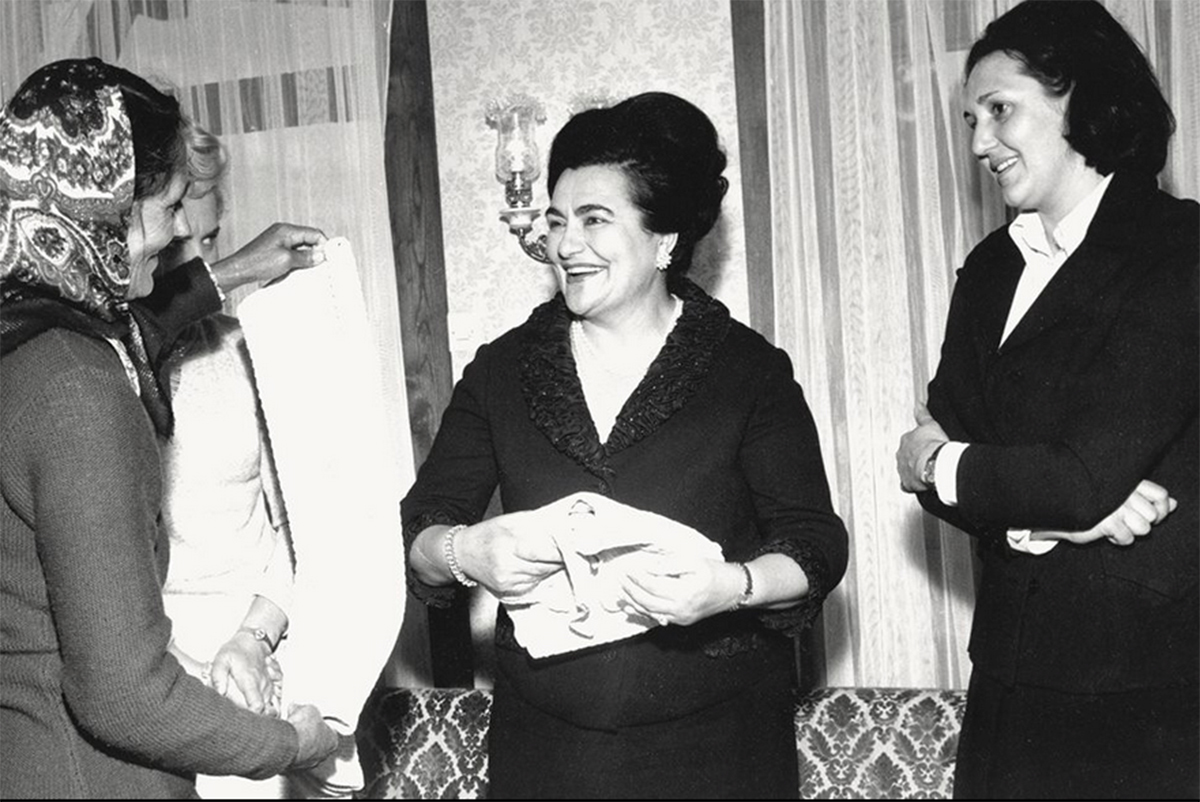
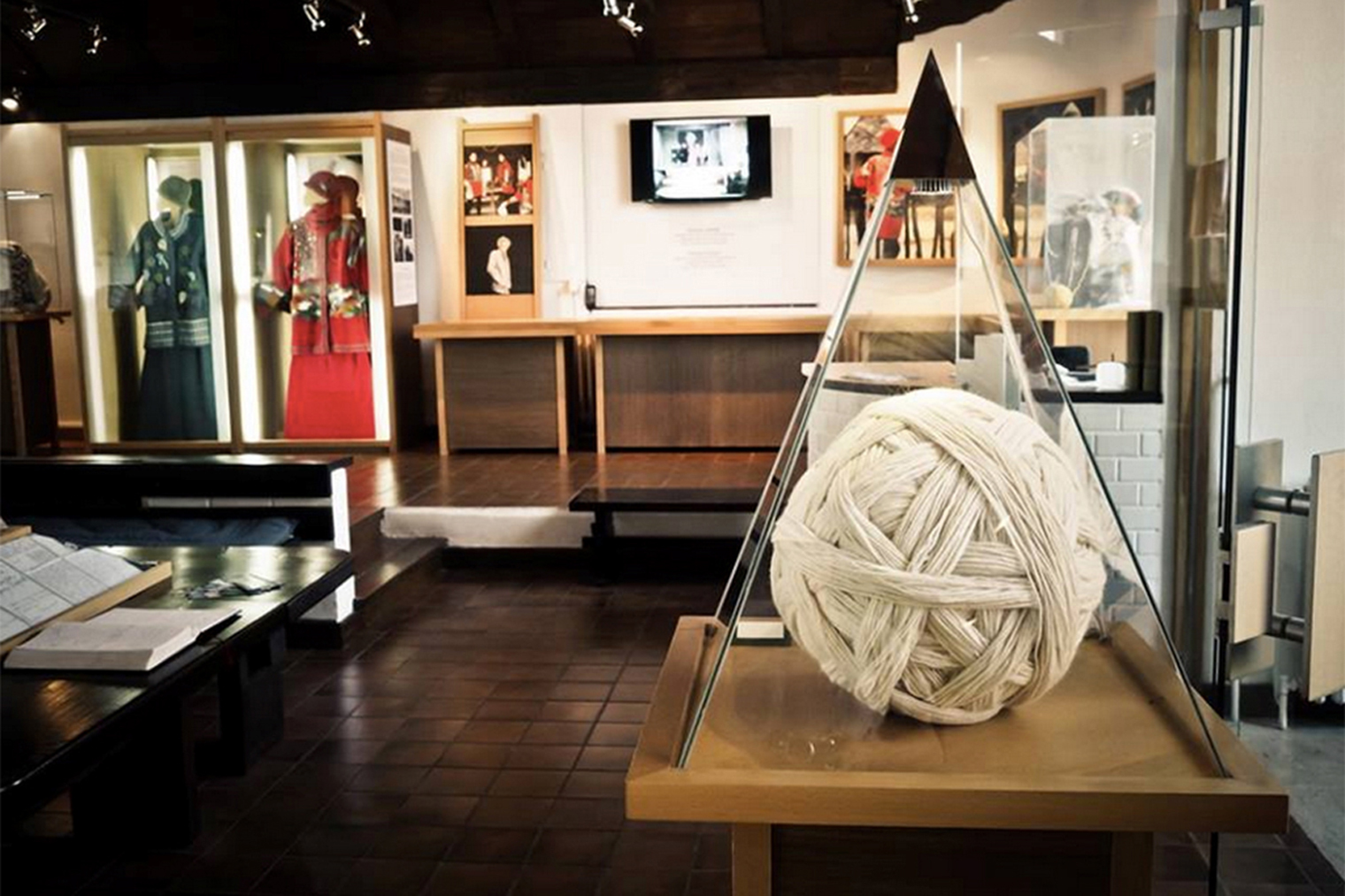
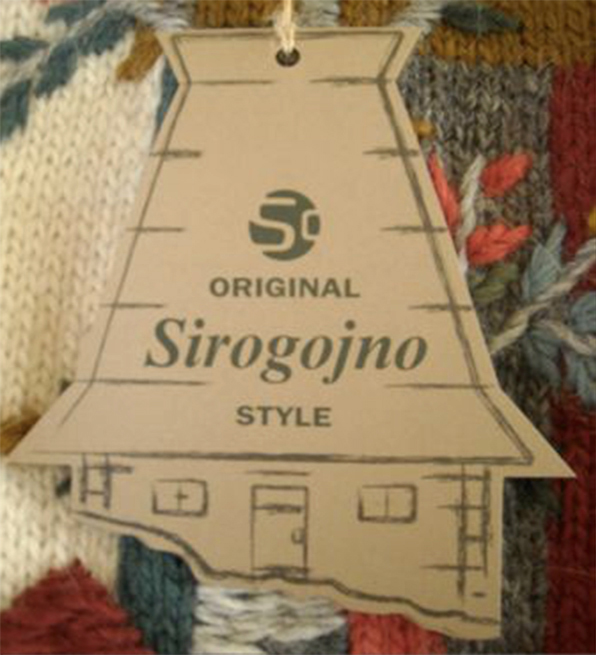
Controlled quality
Since 1998 Sirogojno Style is a part of the family-owned Sirogojno Company which has been continuing production of hand knitted clothes, respecting the very high standards with regards to the quality of the material, manufacture and design. The model of production in local households, which has become traditional, has been preserved, along with using the wool imported from Iceland as well as a very strict quality control. Each piece of clothing is subject to a strict control in accordance to the detailed instructions with regards to design and way of knitting and is thoroughly controlled upon the manufacture. As a designation of quality, each original piece of the hand-knitted clothes has the label in the shape of a stylized, traditional log house from Zlatibor with the name of the woman-knitter and the Sirogojno Style brand logo.
Reinterpretation of the tradition
Through the cooperation with young artists - fashion designers, photographers, stylists - Sirogojno Style has been always creating new interpretations of its history, tradition and recognizable motifs. Young photographer Djordje Bukvic, fashion designer George Styler, but also a young creator Bojana Čolic and stylist Adela Jovanovic have represented with a great success their concept of Sirogojno knitwear at different events, in the context of the contemporary fashion.
